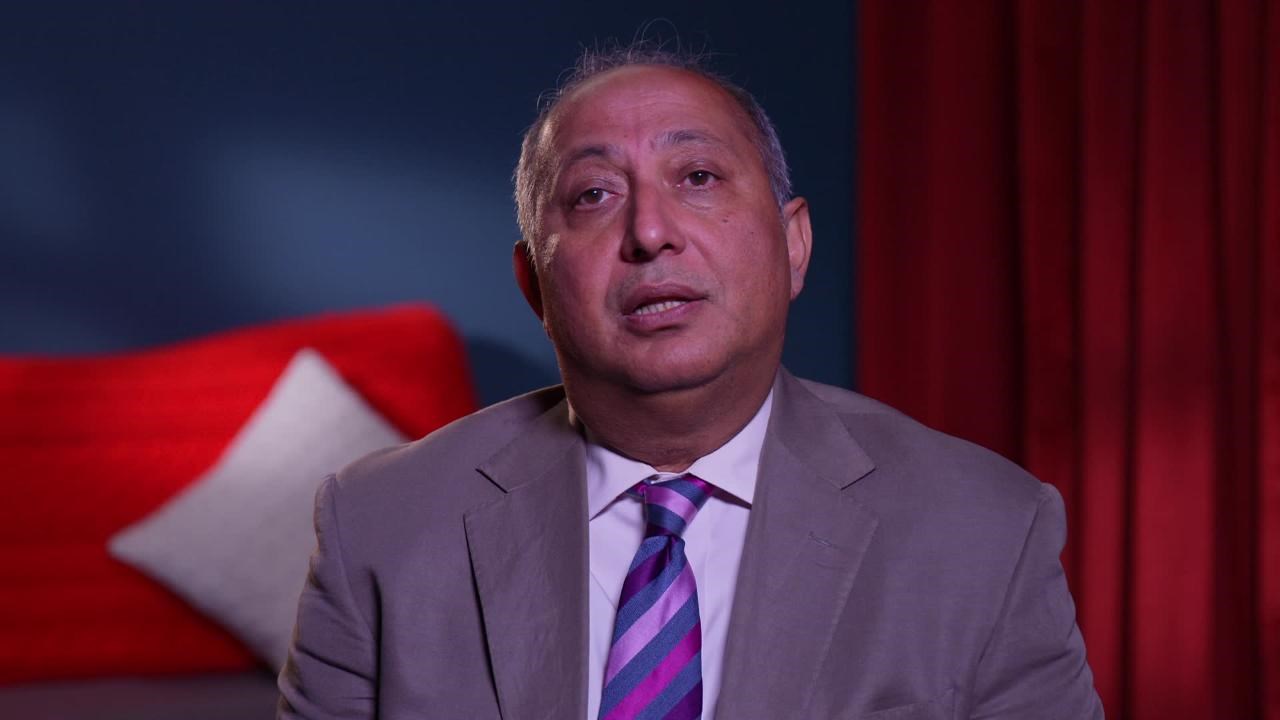
The reality of life after surviving a suicide attempt
Peer reviewed by Dr Sarah Jarvis MBE, FRCGPLast updated by Emily Jane BashforthLast updated 15 Feb 2022
Meets Patient’s editorial guidelines
- DownloadDownload
- Share
- Language
- Discussion
- Audio Version
The Office for National Statistics (ONS) reports that there were 5,224 suicides registered in England and Wales in 2020. The evidence of rising suicide rates in recent years is alarming, with 75% of suicides being male. As important as it is to discuss suicide prevention, we should also consider life after a suicide attempt. Rebuilding your life after an attempt can be challenging.
In this article:
Trigger warning: this article contains a discussion of suicide and suicide attempts.
Suicide rates in England and Wales have increased in recent years, with 2018 seeing the highest number of suicides in 14 years. While there has not been evidence of an increase in the incidence of suicides during the first COVID-19 lockdown, there is no cause for complacency.
Lindsay Percival is a psychotherapist and spokesperson for the UK Council for Psychotherapy (UKCP).
She points out that while people can and do recover from attempted suicide, it's crucial to remember that everyone's journey is unique.
"Suicide may have seemed like the only solution to life challenges that seemed insurmountable to that person at the time. The key to helping them get on with their lives is to remove judgement, stigma, blame and shame around their actions.
"Understandably, you may feel shocked, confused or angry towards your loved one. You might try to minimise it as 'attention-seeking', whilst also trying to process your own complex feelings of guilt."
She adds there may be questions around:
Why didn't I see this coming?
What should I have said or done to prevent it?
What can I do to stop it from happening again?
But Percival says what is needed, in the early stages, is to hold the space for the person recovering.
"At a time in a person's life when they are most vulnerable, unconditional love and care from those closest, with the support of professionals, is vital."
She explains that a suicide attempt is an intense psychological and physical shock to the mind and body. Therefore, it's important to listen and gently ask what is needed, rather than to assume.
"Ask open-ended questions rather than intruding or interrogating. Encourage a person to help themself, to take safety measures and seek professional help. This is better than making them feel like a burden."
Continue reading below
Duncan's story
Duncan, 33, has had two suicide attempts and many incidences of self-harming. He has struggled with significant depression and anxiety since his teenage years, with added manic periods. Duncan also struggled with bulimia nervosa.
"My first suicide attempt was in my 20s, due to debts, family issues and feeling unable to cope. Things felt hopeless and I felt I had let my wife down. It was a very dark and frightening place," he shares.
Duncan had suicidal ideations many times following his first attempt to take his life, but the next attempt came at 30 years of age, after being consumed by depression.
"I left work early. I don't remember what I did, but I recall where I ended up. Between my wife, my line manager, my occupational health nurse and my GP, I received outstanding support. With their help, I checked in to A&E, who fast-tracked me and kept me in for psychological support."
The power of a support system
Duncan praises his friends and family, particularly his wife, for helping him through his lowest moments. He says his wife didn't judge him. Instead, she reassured him and promised that they would tackle this together.
"My family and friends' responses to my suicide attempts were ones of panic and heartbreak, but also understanding and support. Nobody trivialised my feelings and this was a huge help. It may be tempting to make statements such as, 'It could be worse.' But people need to understand that even though you may say this with the best of intentions, this is handling it very badly."
Pursuing recovery
Despite having a solid support system, Duncan said the 'darkness' returned, and recovery only truly began once he was diagnosed with bipolar.
"It suddenly made sense. The symptoms were all me. Having a reason for why I get manic and depressed made me feel that it wasn't my fault and I wasn't mad. I had something to work on. It was a relief. Through talking and medication, my feelings became more balanced," he says.
He now feels lucky to "be married, have a wonderful job with the best boss, have a supportive network and have a lovely home".
Duncan has always experienced happy periods between depression. He has often either felt full of joy or in dark places. However, he hasn’t felt suicidal for a year and has started to tackle his eating disorder of 18 years, feeling proud for not engaging in certain bulimic behaviours for nearly three months.
"I feel at a stage where I can boast that I have beaten it. My fears around money have lessened too, or at least I can deal with it more without screaming, crying and expressing huge anger."
What people need to know
Duncan stresses a suicide attempt isn't for attention.
"There are many misunderstandings around suicide. For someone to get to that place, they are serious and they need love and support. Don't believe that they don't think of the impact on others. They do, but the darkness is so powerful it is able to beat that."
He explains that a suicide attempt can stem from a multitude of situations, and doesn't always follow a crisis.
"We have a way to go, especially in terms of judging others. Looking back, I still don't think, 'God, what was I doing? What a fool'. I think, 'I survived that for a reason. It was hard, it was devastating, and my feelings were valid'."
Anna's story
Back to contentsAnna, 24, is a suicide survivor who has experienced multiple suicide attempts. She remembers them all, even down to the exact clothes she was wearing as she sat in A&E with the police after her first attempt.
"That was six years ago. I felt isolated at the time. I had not long started university and I was struggling with living in halls. I'm a very quiet person and, all of a sudden, I was in an environment that was the opposite of everything I enjoy. I loved what I was studying and the city I was in, but my brain made the bad far outweigh the good," she says.
The aftermath
Following her first suicide attempt, Anna was hospitalised for a week. She praises the doctors and nurses for comforting her, being patient and validating how she felt.
"I had an assessment before being discharged, later having regular follow-ups with my community mental health team. Unfortunately, my second suicide attempt came shortly afterwards, and I was asked to leave university as I wasn't well enough to stay."
Anna was determined to keep her struggles a secret from her family because she didn’t want to hurt them.
Her family's reaction
"Because I kept it hidden, there was a lot of anger and upset when my family initially found out. They wished they could have supported me, but I didn't want their help. I shut them out and it impacted our relationship for a few years," says Anna.
Luckily, she's rebuilt her relationship with her family and is now honest about everything.
She admits one of the hardest aspects is handling the trauma of surviving a suicide attempt, as it's "not something you ever forget".
As she tries to manage this trauma, Anna takes medication and is committed to recovering from her other mental illnesses, such as her eating disorder.
But, she explains how her suicide attempts seem to 'follow' her everywhere once people are aware.
"It's also really difficult to stay living a life that you didn't plan on being a part of. I've had five birthdays since my first attempt, and it's still difficult to process that I spent so long hoping I wouldn't be alive to celebrate the next milestone."
Looking to the future
While life isn't perfect for Anna, she admits it is far better than it was.
She's living independently, managing her own medication, and plans to train to become a counsellor soon. Anna's chronic health conditions have placed barriers in her path but she reminds herself of the importance of staying mentally well.
"I've been hospital-free for two years now. It's also been two years since my last suicide attempt and two years since I self-harmed. I'm trying my best to recover from my eating disorder. That's not to say life is easy but, for the first time in a long time, I want to stick around to see what happens next."
Continue reading below
Nicholas' story
Back to contentsNicholas, 25, has struggled with suicidal thoughts all his life due to his autism, anxiety and depression.
He was bullied for most of his childhood, constantly feeling that nobody understood him.
"It all got too much. I attempted suicide when I was really young. Luckily, my dad found me before anything happened. As an adult during the pandemic, I've experienced highs and lows. Therefore, I attempted suicide several times during lockdown, before my partner found me."
Nicholas says his suicidal thoughts mostly derived from mistreatment, or teachers not understanding his disability.
He had lots of therapy as a child and was eventually diagnosed with autism.
"When I eventually moved to a more mainstream school, I felt better and didn't experience these negative thoughts as much."
Life as an adult
Nicholas praises his family for being loving and supportive. He admits he is 'lucky' to have a strong support network who are always there for him.
To manage his mental health on a daily basis, Nicholas takes antidepressants. He also relies on reassurance and guidance from his partner, whom he trusts and feels able to confide in about anything. Nicholas' partner is understanding and accepting towards his autism, which he says is key to him remaining mentally well.
"But, after having multiple suicide attempts, it's hard to rebuild your life. It's hard when you experience a suicide attempt, slowly recover from it, and end up experiencing another one," he adds.
The challenges
Nicholas says he has always felt 'ashamed' and 'defeated' when trying to take his own life.
He adds how complex the process of healing from that trauma is, and how he can even feel like a failure for 'not being able' to kill himself.
"So, I'd say the hardest challenge is the barrage of different emotions you ultimately feel after a suicide attempt, and trying to combat them. There is so much to contend with."
While Nicholas is in a good place at the moment, he admits to having 'dark moments', and had a mental breakdown last year.
"I'm slowly building myself back up. I've gradually taken on more hours at work and I am enjoying my current job. But, while I feel content at work, this doesn’t change the fact that I have serious mental health conditions. I do get lots of challenging days and I have to enforce coping mechanisms to get by."
Something to remember
"People who attempt suicide are not selfish, so do not judge them. Instead, acknowledge that they have serious mental health issues and may feel like there's no way out."
Nicholas stresses the importance of always being kind to others.
"They might be going through a really tough time, and you just don’t realise."
Where to find help after a suicide attempt
GP.
Community Mental Health Team.
CALM (Campaign Against Living Miserably).
Patient picks for Depression

Mental health
Why do I feel depressed in the New Year?
Most of us take part in the annual Christmas and New Year celebrations and rituals, which include reflecting on the year and creating resolutions for the one ahead. Although these traditions can be enjoyable, there are many reasons why they may leave us feeling depressed.
by Amberley Davis

Mental health
Video: Why do people get depressed?
With a condition as complicated as depression, two cases are rarely the same and the underlying reasons why you or those close to you are affected may need professional support to uncover. We may not be able to offer all the answers, but our experts have tackled some of the common questions that arise.
by Prof Swaran Singh, FRCPsych
Article history
The information on this page is peer reviewed by qualified clinicians.
15 Feb 2022 | Latest version
15 Feb 2022 | Originally published

Ask, share, connect.
Browse discussions, ask questions, and share experiences across hundreds of health topics.

Feeling unwell?
Assess your symptoms online for free
Sign up to the Patient newsletter
Your weekly dose of clear, trustworthy health advice - written to help you feel informed, confident and in control.
By subscribing you accept our Privacy Policy. You can unsubscribe at any time. We never sell your data.